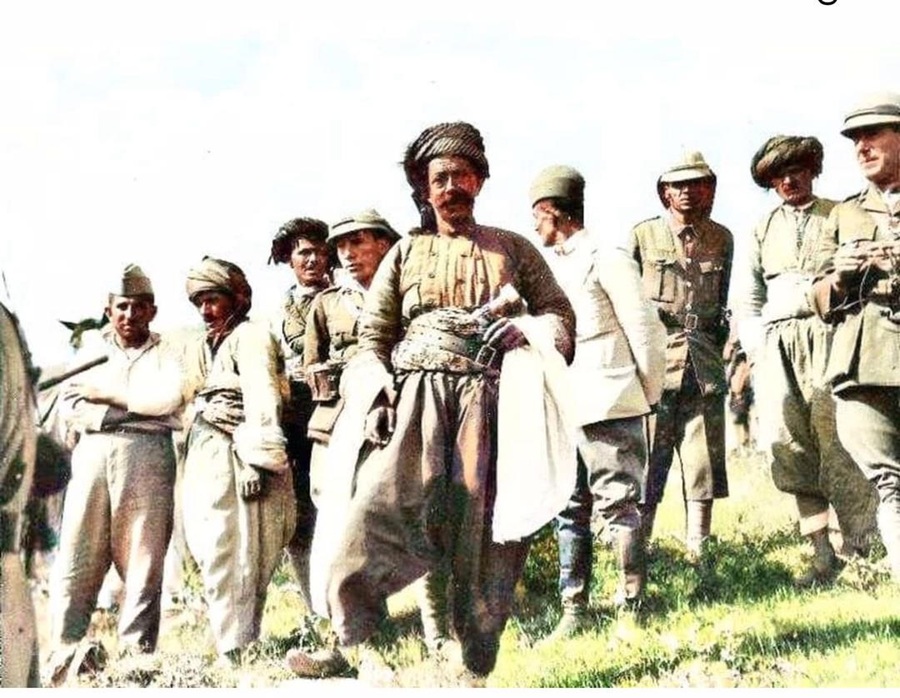As it was mentioned in the previous article, the British and above all Sir Percy Cox were looking for a leader who could have the majority's loyalty. That is why Cox chose Sheikh Mahmud. He also said he did not want to do so but the Suleimani population made him bring back "Sheikh Mahmud". That is, Sheikh Mahmud had the support of the majority of people who thought that the dilemmas and struggles that were happening in the region would not be solved by anyone except him. At the same time, however, "Sir Percy Cox" saw this as an experiment i.e., Sheikh Mahmud could be successful in settling the quarrels and controlling the situation or he would be cast aside once more.
As "Chris Cochera" says, when Sheikh Mahmud returned to Kurdistan and Suleimani in 1992, he was a 44-year-old man and later he became Britain's main enemy. Cochera introduces Sheikh Mahmud as a brave and fierce man and says that he was a great marksman and an experienced warrior. He possessed all the characteristics of a Kurdish leader. He was an eloquent speaker. He had a strong voice and charisma. He had a great influence on his followers.
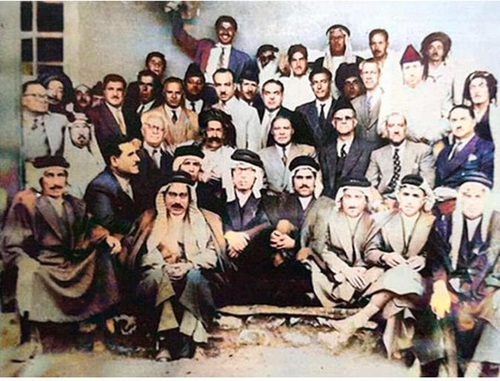
Most of the British who had written about Sheikh Mahmud did not mention his name nicely, and they believed that Sheikh Mahmud was a fierce man and detested his ambitious character among whom we can name an officer, "Swoun" in an article called "A travel to Kurdistan anonymously" and another British officer also talked about Sheikh Mahmud in an article called "A short commentary on the South part of Kurdistan circumstances".
The question is; so why did Cox bring back Sheikh Mahmud to Suleimani and let him take charge of the region. The researchers' answer is: if Britain would have wanted to fight the Turks directly to seize Suleimani and its surrounding areas with their own forces, they needed to establish big military headquarters and artilleries in the area which was not possible to do, thus, they chose to use Sheikh Mahmud's spiritual power and his soldiers and they did.
After Sheikh Mahmud returned to Suleimani, he did not wait for the British commands. Since he had been the leader of another Kurdish uprising before and it was clear that he wanted to play the role of an independent leader who sought to establish an independent Kurdish state so on October 10, 1922, he announced his first declaration from his Capital city, Suleimani, and he selected his Cabinet of Ministers.
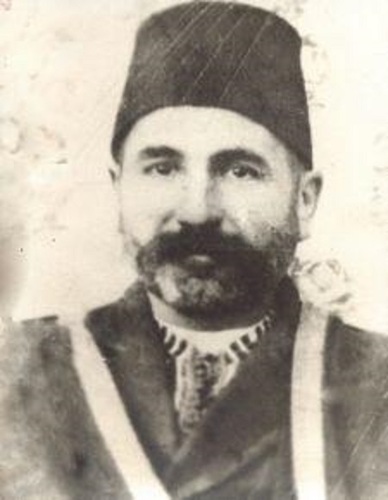
Karim Alaka - Sheikh Mahmud's Minister of Finance
Sheikh Mahmud's Cabinet of Ministers included eight ministers who were under his own command.
Sheikh Mahmud's Ministers included, "Sheikh Qader", the Prime Minister; "Sheikh Mahmud", the Defense Minister; "Karim Alaka", who was Christian was the Minister of Finance; "Sheikh Mohammad Ghaleb", the Minister of Internal Affairs; "Mohammad Agha", the Minister of General Affairs; "Sheikh Ali Kaldari", the Minister of Justice; "Saeed Ahmad", the Chief of Police, and "Haji Mustafa Pasha", the Minister of Education.
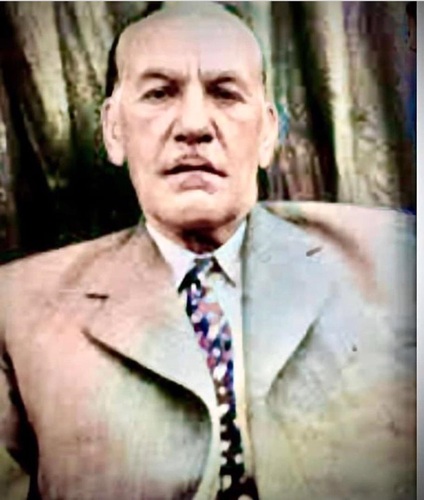
Hamad Agha, the Minister of General Affairs in Sheikh Mahmud Cabinet
A month after he announced his Cabinet of Ministers on November 18, 1922, he declared himself to be "The King of Kurdistan".
Later, Sheikh Mahmud established a magazine named "Kurd's Day". Some eminent figures such as "Arif Saeb" and "Rafiq Hielmy" were active members of that magazine.
Although Sheikh Mahmud promised Cox not to interfere in Kirkuk and Hawler (Erbil's) affairs, however, Kirkuk ended up in a peculiar situation; the Turks began to claim it as their land on the one hand, Malik Faisal considered it as a part of Iraqi land on the other hand and since Sheikh Mahmud had selected two of his companions from Kirkuk, he had shown that this city belonged to Kurdistan. This created an intangible situation for all the parties.
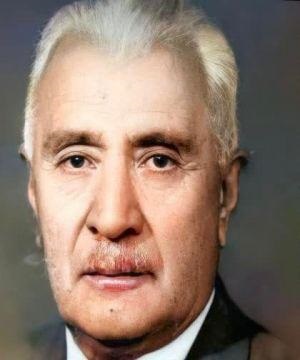
Rafiq Hielmy - Author
Sheikh Mahmud intended to motivate the British so he began to exchange messages with the Turkey agent named "Ozdamir". He was planning to put the British under pressure in this way. But the Turks identified Sheikh Mahmud as the British instrument and they did not cooperate with him. However, Sheikh Mahmud assured them that he would cooperate with Turkey completely.
On the other hand, the British and Arabs began to plan another way to settle the complicated situation of the Kurds and recognize their government legal. They wanted to give the Kurds a regional governance to the Kurds in the Suleimani region and they did not expect the Kurds' demand to grow beyond this and they would claim to have an autonomous state separated from Iraq. However, Sheikh Mahmud's magazine had mentioned the neighboring countries of Kurds and Arabs officially as two independent nations. Thus, Britain announced a declaration in 1922, to ask Sheikh and all his Ministers to go to Baghdad for negotiations to discuss the related problems of the Kurds and their rights.
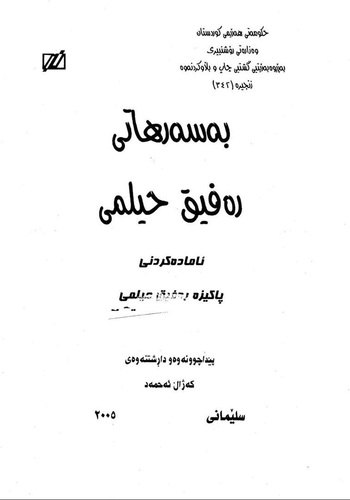
On the other hand, the Lausanne Conference failed and Sheikh Mahmoud, far from the will of the Sunni Arabs, King Faisal, and Britain, tried to form a large force. He wanted to cooperate with the Shiites of southern Iraq and organize a major movement against Britain and the Iraqi monarchy.
Five months after the proclamation of Sheikh Mahmud's kingship, Britain gave him a final warning that if he and his ministers did not go to Baghdad, Sulaimani would be bombed by British aircraft.
Sheikh Mahmoud refused to meet Britain's demand; therefore, the city of Sulaimani was bombed, and Sheikh Mahmoud, the king of Kurdistan, left Sulaimani and went to the cave of Surdash and continued his defence there. Thus, the government of Sheikh Mahmud ended. As we have already said, Britain was involved in all the details of the events, and therefore, regardless of how realistic and political the Kurdish leadership acted in this situation, it can be said that "the British did it."

